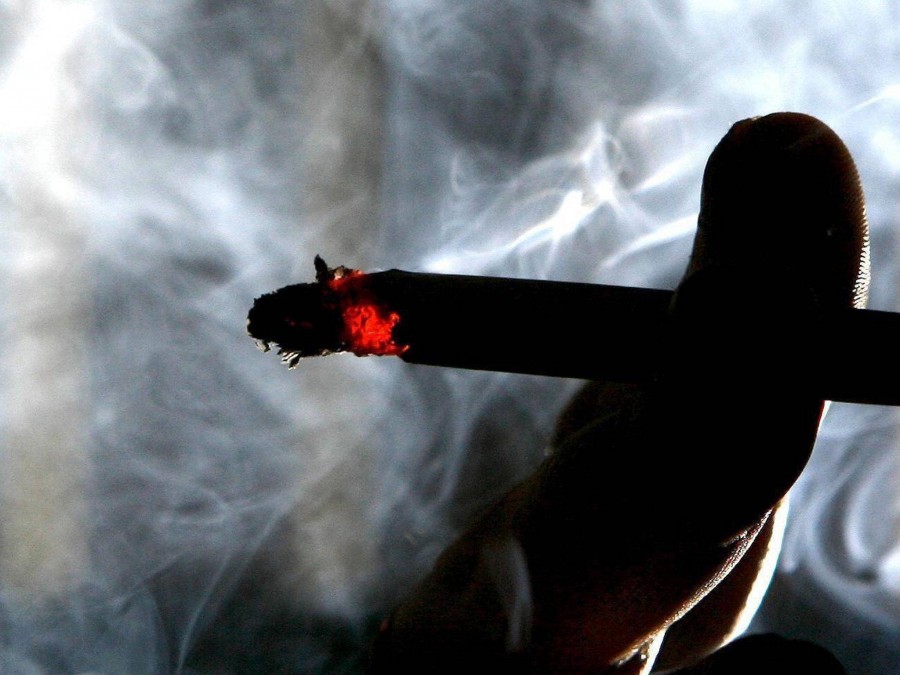
近日,著名国际学术期刊nature medicine在线发表了华人科学家Ming-Hui Zou研究小组的最新研究进展,他们发现烟草中的尼古丁会激活脂肪细胞中的蛋白激酶AMPKα2,导致下游信号通路激活,增加脂肪细胞中的脂解过程,虽然出现体重下降,但是会导致严重的胰岛素抵抗。
之前研究发现,吸烟会促进人体重降低,但同时会导致胰岛素抵抗和高胰岛素血症,隐藏在背后的分子机制一直未有研究。
研究人员发现烟草中的尼古丁能够选择性激活脂肪细胞中的AMPKα2,AMPKα2作为一种蛋白激酶能够对MAP激酶磷酸酶1(MKP1)的334位丝氨酸进行磷酸化,促进MKP1的蛋白酶体途径降解过程。尼古丁依赖性的MKP1下降会诱导p38有丝分裂原活化蛋白激酶(p38MAPK)和c-jun N端激酶(JNK)的异常激活,导致胰岛素受体底物1(IRS1)307位丝氨酸发生磷酸化。磷酸化的IRS1会加速降解并抑制蛋白激酶B(PKB),导致细胞丧失胰岛素介导的对脂解过程的抑制。最终,尼古丁增加了脂肪细胞的脂解过程,导致体重下降,但脂解过程的增加同时升高了循环系统中的游离脂肪酸水平,引起胰岛素敏感性组织中的胰岛素抵抗。
这些结果证明了AMPKα2作为关键调控因子在尼古丁诱导的全身性胰岛素抵抗中的具有重要促进作用。
原文链接:Activation of AMPKα2 in adipocytes is essential for nicotine-induced insulin resistance in vivo
Cigarette smoking promotes body weight reduction in humans while paradoxically also promoting insulin resistance (IR) and hyperinsulinemia. However, the mechanisms behind these effects are unclear. Here we show that nicotine, a major constituent of cigarette smoke, selectively activates AMP-activated protein kinase α2 (AMPKα2) in adipocytes, which in turn phosphorylates MAP kinase phosphatase-1 (MKP1) at serine 334, initiating its proteasome-dependent degradation. The nicotine-dependent reduction of MKP1 induces the aberrant activation of both p38 mitogen–activated protein kinase and c-Jun N-terminal kinase, leading to increased phosphorylation of insulin receptor substrate 1 (IRS1) at serine 307. Phosphorylation of IRS1 leads to its degradation, protein kinase B inhibition, and the loss of insulin-mediated inhibition of lipolysis. Consequently, nicotine increases lipolysis, which results in body weight reduction, but this increase also elevates the levels of circulating free fatty acids and thus causes IR in insulin-sensitive tissues. These results establish AMPKα2 as an essential mediator of nicotine-induced whole-body IR in spite of reductions in adiposity.

